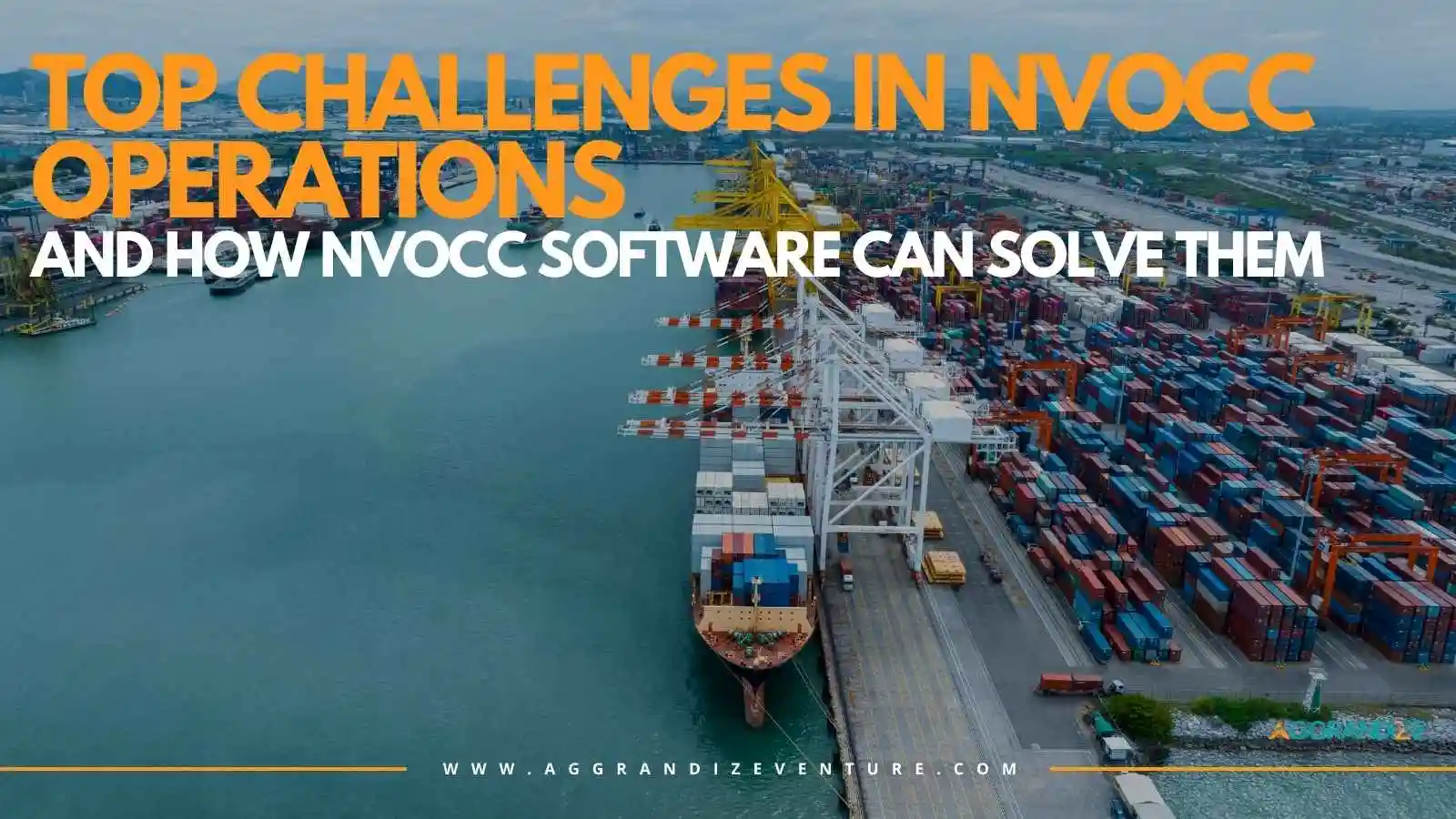NVOCC Operation
Top Challenges in NVOCC Operations and How Software Can Solve Them
Date: 05-12-2024
The function of Non-Vessel Operating Common Carriers (NVOCCs) in the global shipping industry is to enable the bond between shippers and ocean carriers. NVOCCs carry out major logistics activities, which represent the smooth movement of goods across countries. On the other hand, NVOCCs, despite their significance, face the multitude of operational challenges that can undermine the effectiveness and compliance of the logistics chain by not meeting the customer requirements. In this article, we will highlight these challenges and elaborates on how state-of-the-art NVOCC software can effectively solve them.
What is an NVOCC?
A Non-Vessel Operating Common Carrier (NVOCC) is a very crucial link in the logistics network, which operates as a shipper without owning any vessels. They consolidate shipments, issue bills of lading, and coordinate with various stakeholders, ensuring smooth freight movement.
How NVOCCs Facilitate Global Trade
NVOCCs simplify logistics for shippers by offering consolidated services, negotiating rates with carriers, and ensuring proper documentation. Their role is indispensable in navigating the complexities of international shipping.
Differences Between NVOCCs and Freight Forwarders
While both entities coordinate shipments, NVOCCs issue their bills of lading and assume carrier responsibilities, unlike freight forwarders who primarily act as agents.
Navigating Complex Documentation Processes
Proper documentation plays an essential role in the smooth running of businesses, such as agreements of carriage, manifests, and customs clearance documents. Faulty and outdated methods, such as the use of paper or manually filled forms, can lead to numerous mistakes, prolonged time, and additional penalties, hence, the time outlined in the contract may run out.
Adapting to Regulatory Compliance
Companies in the trading world have to deal with the volatile nature of compliance with regulation. While the non-vessel-operating common carriers (NVOCCs) have to maneuver through the preferred requirements of customs, pass up trade embargoes, and cope with environmental regulations, which involve issues of the whole sector to kept watch on and constant revisions.
Ensuring Real-Time Container Tracking
It is impossible to overestimate the impact of the correct monitoring of cargo deliveries. Through this, both transparency and meeting delivery commitments can be achieved. Nonetheless, part systems and old technology often inhibit proper real-time tracking hence resulting in redundant processes and customer dissatisfaction.
Managing Operational Costs
Rising port charges, surging fuel costs, and high carrier fees create a complex and constant problem for companies to maintain the rate of being competitive and profitable. The poor handling of the report makes cost pressure even more dangerous.
Overcoming Communication Gaps
Miscommunication among shippers, carriers, and customs authorities can result in delays, errors, and financial losses. Traditional communication methods are often too slow to handle the fast-paced demands of logistics.
Meeting Evolving Customer Expectations
More than anything their clients expect them today to be fast, easy, transparent, and trustworthy. They prefer an over-the-shoulder approach in addition to some tempting communication that even releases the truth about stretching track chunks.
Handling Data Management
The sheer volume of data generated in logistics operations requires effective management. Inconsistent data handling can lead to incorrect decision-making and regulatory issues.
Automation of Documentation
Modern software automates the generation, checking, and transmission of documentation making it error-free and compliant. The centralized digital storage ensures all the parties get correct records effortlessly.
Simplifying Compliance Monitoring
The NVOCC software has real-time updates and automated checking features, thus, compliance with complex and changing regulations is guaranteed. This, in turn, decreases the risk of penalties and operational hiccups.
Advanced Tracking and Visibility
IoT and GPS-equipped software give real-time information on the container's movements. A centralized platform allows stakeholders to keep track of shipments at every phase.
Cost Optimization through Analytics
The predictive analytics tools in the software help identify cost-saving strategies, route optimization, and resource allocation, thereby, maximizing profitability.
Enhancing Communication and Collaboration
Cloud-based platforms facilitate seamless communication among all parties involved. Instant updates and shared workspaces reduce delays and errors caused by miscommunication.
Improving Customer Experience
With features like personalized dashboards, real-time shipment updates, and automated notification, software increases customer happiness and builds trust.
Data Centralization and Security
All data is centralized and available for all users by such unified platforms. Strong security measures shield the business's and customers' personal data from hackers.
Criteria for Selecting the Right NVOCC Software
NVOCC software should be chosen by taking into account certain factors like scalability, user-friendliness, compatibility with existing systems, and data security features. These things guarantee that the solution is how it should be right now and that it is able to change and grow in the future.
The Future of NVOCC Operations
Logistics is in transition as a result of digital transformation. NVOCC operations will set a new standard of efficiency, security, and transparency by utilizing such cutting-edge technologies as AI, blockchain, and IoT.
NVOCCs are the vital parts of global trade, still, they are overloaded with problems. The use of sophisticated NVOCC software solutions makes it possible to improve the workflow, increase compliance and supply better customer experiences. Technology has become a competitive advantage that, skillfully manipulated, NVOCCs can use to win the game in an ever-changing market.